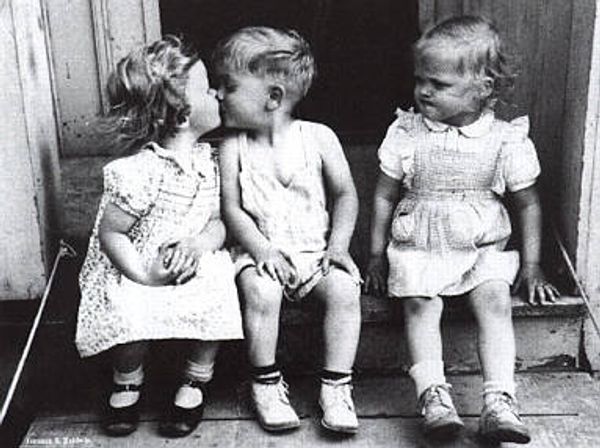Let's start with a brief history lesson. In February of 1926, the Association for the Study of Negro Life and History sponsored a Negro History Week. The event caught on in the years that followed, leading to its observation by cities and college campuses across the United States. On Feb. 10, 1976, President Gerald R. Ford federally recognized the entire month of February as Black History Month -- every U.S. president since has renewed this recognition while in office. In the brief speech he gave accompanying the recognition, President Ford said, "We can seize [this] opportunity to honor the too-often neglected accomplishments of black Americans in every area of endeavor throughout our history."
In that same speech, President Ford said, "Freedom and the recognition of individual rights are what our Revolution was all about. They were ideals that inspired our fight for Independence: ideals that we have been striving to live up to ever since. Yet it took many years before ideals became a reality for black citizens." So why does Black History Month matter to the United States in 2016? It matters because many of the ideals behind the American Revolution were not actually a reality for African-American citizens in 1976, and are still not a reality for many African-American citizens today.
Black History Month has received heavy criticism from people of all nationalities, cultures and ethnic groups. In 2005, Morgan Freeman gave an interview on "60 Minutes" in which he said he found Black History Month "ridiculous," claiming the history of African-Americans cannot be relegated to one month and that the cure for racism is to stop talking about it. He said, "I don't want a Black History Month. Black history is American history."
As you may or may not have noticed, I'm not black. I don't know what it's like to belong to that culture. So it might not be my place to say it, but I'm going to anyway, "We need Black History Month." Should we educate ourselves on cultures other than our own, year-round? Yes. Do we? Not really, not enough. I agree with Morgan Freeman that black history is American history, and our education systems have made progress when it comes to including the perspectives of other ethnic groups into the curriculum. I don't believe, however, that this inclusion is equal. In a perfect world, we wouldn't need Black History Month -- but it's not, and we do.
I don't think racism is an annoying kid who will go away if ignored. I believe racism is a dangerous enemy which can only be defeated with direct intervention. Black History Month gives American citizens (as well as others around the globe) an opportunity to grow ever more conscious of and involved with a specific culture that heavily influences them, whether they recognize it or not.
This is an important issue, and I'm sure my argument isn't doing it enough justice. So I'll let somebody else try. Last month, Macklemore released a song called "White Privilege II." It's a very important song, and you should listen to it here:
The live performance is fantastic, but it's a little different than the studio version (which you should also listen to). The original song includes clips from interviews about issues surrounding racism. In one of these interviews, a man says, "Black lives matter, to use an analogy, is like if there was a subdivision and a house was on fire, the fire department wouldn't show up and start putting water on all the houses because all houses matter. They would show up and they would turn their water on the house that was burning because that's the house that needs the help the most."
Here are a few other lines from the song to think about:
"It seems like we're more concerned with being called racist than we actually are with racism."
"But the one thing the American dream fails to mention is I was many steps ahead to begin with."
"We want to dress like, walk like, talk like, dance like -- yet we just stand by. We take all we want from black culture, but will we show up for black lives?"
I obviously don't know how to solve all these extremely difficult issues, but I do know that answers won't come if we ignore the problem entirely. As we become more open and aware, we'll be able to see more clearly and act with intentionality toward equality.





















